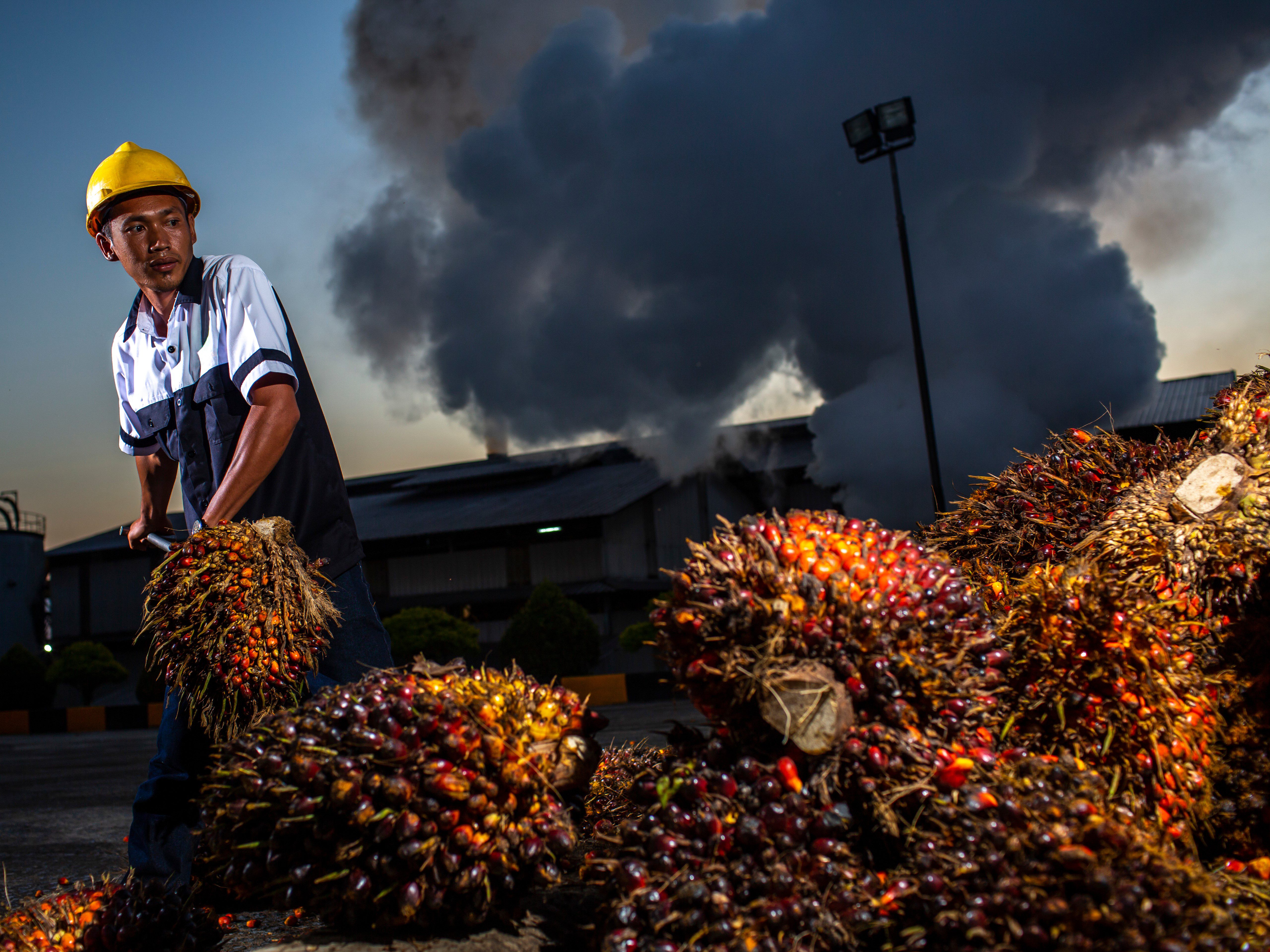Job creation law AND The environment’s future

(Foto Ilustrasi Iosinita87/shutterstock)
-
Date:
17 Apr 2023 -
Author:
KEHATI
17 Apr 2023 Mohamad Burhanudin
The human-nature relationship is always confronted with a typical problem: economic exploitation vs. ecological sustainability. Economic exploitation almost always triumphs and takes primacy, according to the facts. Although it is helpful to human prosperity, prioritizing economic exploitation over ecological has resulted in profound wounds for our nature, which is now posing a counter-threat to human survival.
As a result, the significance of development strategies that prioritize characteristics of sustainability and environmental friendliness becomes clear.
In the midst of a surge of criticism from many groups and a tightening of public expectations for more environmentally friendly development policies, the DPR approved a Government Regulation in place of a Job Creation Law (Perppu) into law (UU) on March 21, 2023. The statute, which the Constitutional Court pronounced conditionally illegal, will now become one of the pillars for how this country will be handled in the future, including the environmental sector.
Law 6 of 2023 Concerning Job Creation (UUCK) is a synchronization of investment and employment legislation into a single law. This legislation transforms licensing from a regulatory to a risk-based approach. The idea is straightforward: to expedite the business licensing procedure.

Foto Ilustrasi BK Awangga/Shutterstock
Following the unification of the two laws that served as the foundation for regulating the sector—Law 32 of 2009 Concerning Environmental Protection and Management and Law 41 of 1999 Concerning Forestry—the environment and forestry sector is one of many sectors that are touched by this UUCK.
Environmental licences for any kind of business will actually have an effect and alter the environment. What remains to be seen is how Indonesia’s environment will be handled going forward with the Job Creation Law (UUCK) in place.
This law generally raises high hopes for the realization of ease of doing business because it was created with the spirit of efficiency in business licensing. On the other side, there are a number of items from UUCK that should be noted since they have the potential to negatively affect the environment and the forestry industry.
Initially, let’s talk about the evaluation of environmental due diligence based on an examination of environmental impacts (amdal). As was previously mandated by Law 32 of 2009, this law does away with the participation of impartial specialists, environmental organizations, and representatives of possibly impacted communities. Article 26 Point 5 UUCK only specifies that communities directly impacted by the plan must be involved in business and/or activity when creating amdal papers. The UUCK’s Environmental Due Diligence Test Team is made up of representatives from the federal, state, and local governments as well as qualified professionals.
The resulting EIA may not be independent and may be skewed in the interests of the party requesting it if independent specialists, environmental organizations, and representatives of possibly affected communities are not included. This is because there is no check and balance system. Additionally, this restriction may negate long-term environmental effects and weaken the proportionality requirement for EIA preparation.
Furthermore, Amdal is exclusively utilized in the job-creation law as a foundation for environmental due diligence for business and/or activity plans. This is different from the past, when choices about environmental viability were based on the EIA. The urgency of the amdal role in environmental feasibility is lessened by its use as the foundation for environmental due diligence.
Second, this UUCK repeals the requirement in Article 18 of Law 41 of 1999 Concerning Forestry that a minimum of 30% of the forest area must be maintained. This requirement had previously been controlled. There is no minimum percentage of forestland that must be preserved under this rule. The only requirement in PP 23 of 2021, which is a derivative of the UUCK and deals with forestry administration, is that the relevant minister must confirm the size of a forest area by creating one based on the minutes of the boundaries of the forest area and a map of the boundaries.
The percentage cap for forest area is not mentioned in this PP, though. This implies that the area of forest might be less than 30% with such a technique. In fact, establishing a minimum forest area limit is essential to maximizing the environmental, social, and economic advantages of nearby towns.
Third, and remaining in the licensing realm, the UUCK offers loan-to-use licences for scenarios of using forest areas for development reasons other than forestry activities, with no restrictions on the kind of activities. In truth, the lend-use permission provisions in Law 41 of 1999 respecting Forestry were only ever applied for mining. This clause may stimulate the exploitation of forests, which can have a similar negative effect on the environment as mining operations.
The aforementioned data demonstrates that UUCK still gives sustainability issues a low priority. Efforts to increase environmental management that are more serious should be matched with the opening of large-scale investment faucets through ease of licensing.
Partha Dasgupta, an economist from the University of Cambridge in the UK, stated that nature is “the most valuable asset” and that humanity as a whole has mismanaged the “global portfolio” in his paper titled “The Economics of Biodiversity: The Dasgupta Review” (2021). This is due to the fact that human demands far outweigh nature’s capacity to provide the “goods and services” that humans require.
According to Dasgupta, human wealth has ruined the biosphere during the previous few decades. Asset management is limited to accounting and investment decisions made by individuals, businesses, governments, and non-governmental organizations. They have, however, failed to manage their worldwide asset portfolio sustainably as a group. Globally, created capital per person increased between 1992 and 2014, whereas the stock of natural capital per person’s worth fell by roughly 40%. According to Dasgupta, if this condition persists, it will take 1.6 earths to support humanity’s existing way of life.
Because it excludes asset depreciation, such as biosphere degradation, the Gross Domestic Product (GDP), which is frequently employed as a measure of development, is no longer appropriate for evaluating a country’s economic health. The goal of sustainable economic growth and development should be to strike a new balance between our need for natural resources and nature’s capacity to provide them.
According to this perspective, UUCK need to exist not only as a tool to assist licensing but also as a means of regulating permits, particularly those pertaining to the exploitation of our natural resources. Thus, we can create a balance between our want or need for natural resources’ products and services and our inherent skills. If not, what will happen is that nature will be exploited to the point where it can no longer support us, endangering the survival of humanity.
Green Investment
However, UUCK really works against the current global investment trend, which is shifting more and more in favor of green investments. According to a recent UN estimate, 5,319 worldwide organizations—the majority of which are investment companies—will have joined the PRIs by the end of 2022, an increase of 140 global organizations from 2021. among the 140 international companies, 14 are asset owners.
By 2022, the total assets under management (AUM) of all international organizations participating in PRI will be worth $121.3 trillion, an increase of about 4,000 percent from the US$3 trillion it was in 2006. Three major Asian investors—ZENKYOREN Japan, Korea Investment Corporation, and Aegon N.V.—have recently inked green commitments in the PRI. They are investors dedicated to promoting environmental, social, and governance (ESG) ideals within their organizations.
The evidence suggests that top-tier investors are becoming more and more concerned about the commitments, infrastructure, and environmental restrictions of investment destination countries. As a large investment umbrella, UUCK should therefore be focused on strengthening this environmental commitment rather than abandoning it. In this manner, our prospects of luring investment are increased.
The government can still act, though. Before they are put into effect, there is still time and room for revision of the UUCK-derived regulations. Here is where the state’s dedication to the environment’s future is decided.
